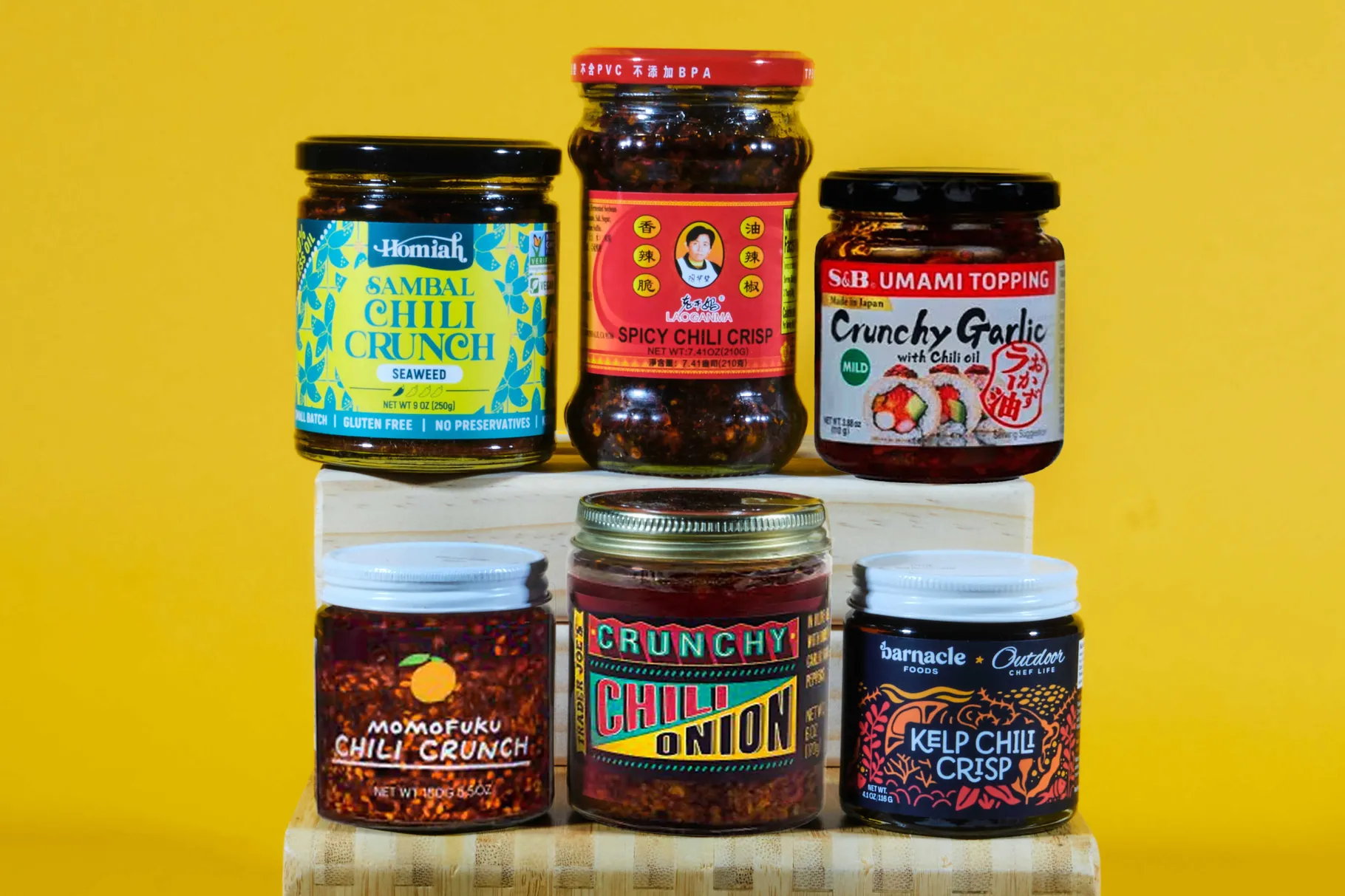Chile crisp — an infused chile oil condiment layered with crispy fried ingredients, with roots in Asian cuisines — is beloved across cultures, inspiring dozens of entrepreneurs to launch their own brands and at least one standalone cookbook. But in the past few weeks, the terms “chili crunch” and “chile crunch,” a variation on chile crisp, has become the subject of an escalating brawl between Momofuku Goods, the grocery arm of David Chang’s empire, and small independent companies using those names, The Guardian first reported.
The result has been for a handful of small independent companies to fight back — the Davids to what they’re saying is Goliath, Momofuku with its own Chili Crunch product — by duking it out with lawyers, in the press, and on social media, with plenty of folks weighing in.
In a cease-and-desist letter sent March 18, 2024, Momofuku’s lawyer accuses Malaysian food brand Homiah, maker of Sambal Chili Crunch — called Crispy Sambal prior to 2023 — of infringing on its trademark rights.
Momofuku indeed owns the rights to the term “chile crunch” (spelled with an “e”), which it trademarked in 2023 with the US Patent and Trademark Office, and which Momofuku licenses to others. In late March, Momofuku also filed for a trademark to protect chile crunch in adjacent food areas of chile oil and seasonings — as well as “chili crunch” with an “i.” It now appears to be going after brands with both spellings.
“Momofuku trusts that Homiah did not adopt the CHILI CRUNCH mark in bad faith or with an intent to create confusion,” the cease-and-desist letter reads. “But because trademark law requires brand owners to police use of their trademarks — and because Momofuku is concerned that consumers may actually be confused here — we write to request Homiah’s cooperation.” It demands that Homiah cease the use of the name within 90 days and to agree not to use or apply to register in the future “any marks that incorporate the components of chili crunch or chile crunch.”
Homiah’s founder Michelle Tew says she was “gutted” to receive the letter. “As a minority small business owner, I’ve personally been a strong supporter of Momofuku’s restaurants and products since immigrating to the USA more than a decade ago,” Tew wrote in an email to Eater. “Chili crunch has a history that long predates Momofuku’s product and is culturally common throughout a variety of cuisines from China to Korea to Malaysia, where I grew up,” she wrote, citing the product is based on a family recipe that goes back “at least five generations.” She joins others in their anger over Momofuku trademarking the name for what they see as a category of products, homing in on the semantics of language to stifle other crisps and crunches from small, independent, Asian-owned companies.



